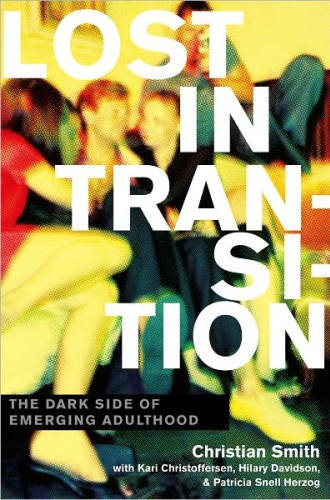Young adult realities
Two opposing perspectives on the present generation of young people and their potential have dominated in the media and in the consciousness of church members. One group (discussed in books like Don Tapscott's Growing Up Digital) fawns over young adults, calling them the smartest generation ever and their altruism and creativity the salvation of our society. This interpretation is unsubtly countered by others, who say that this generation is probably the dumbest that has ever existed (as in Emory professor Mark Bauerlein's book, The Dumbest Generation).
Lost in Transition offers an insightful, balanced take on what the lead author calls "emergent adults"—those between 18 and 23. The book doesn't fall into either of the aforementioned ditches because the research behind the text reveals that emergent adults are neither the great hope of our nation (the so-called Obama generation) nor the crazed idiots disdained by some intellectuals. Christian Smith, a professor of sociology at Notre Dame, offers a way between those vast overstatements.
Smith is not new to the subject. This is his third book based on his nationwide survey of youth and religion. He presented the study's initial findings on high school-aged young people in Soul Searching; he then followed those young people to college and marked their religious changes in Souls in Transition.






